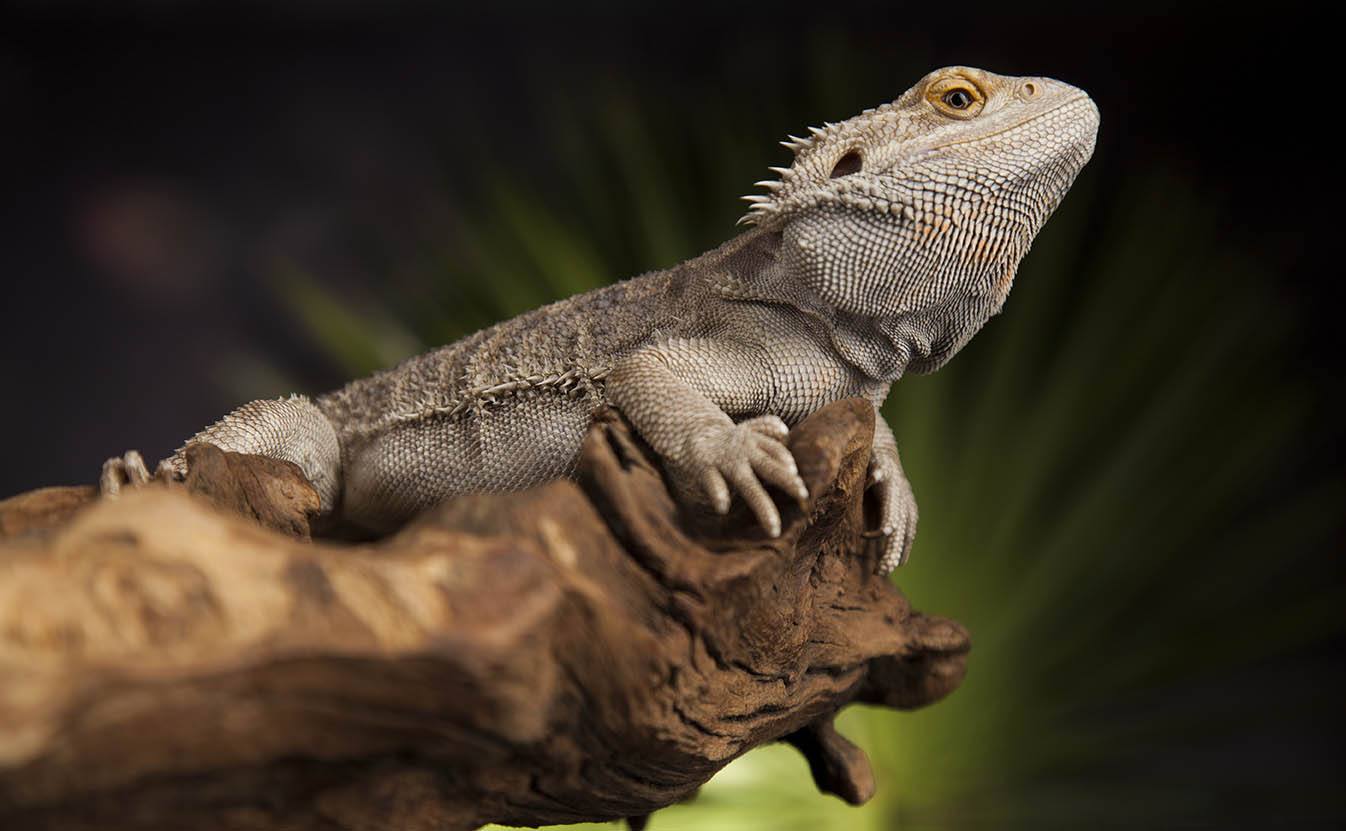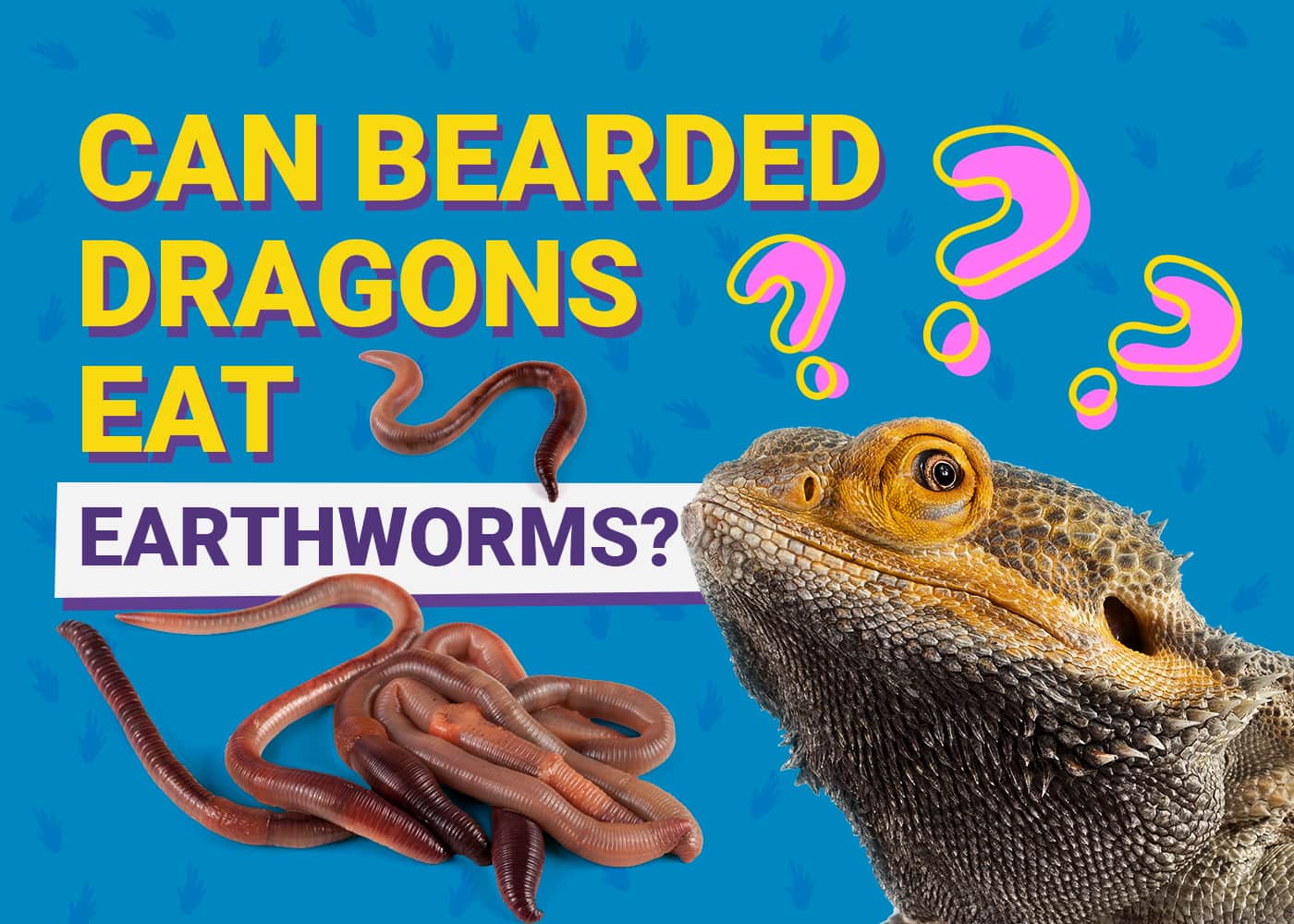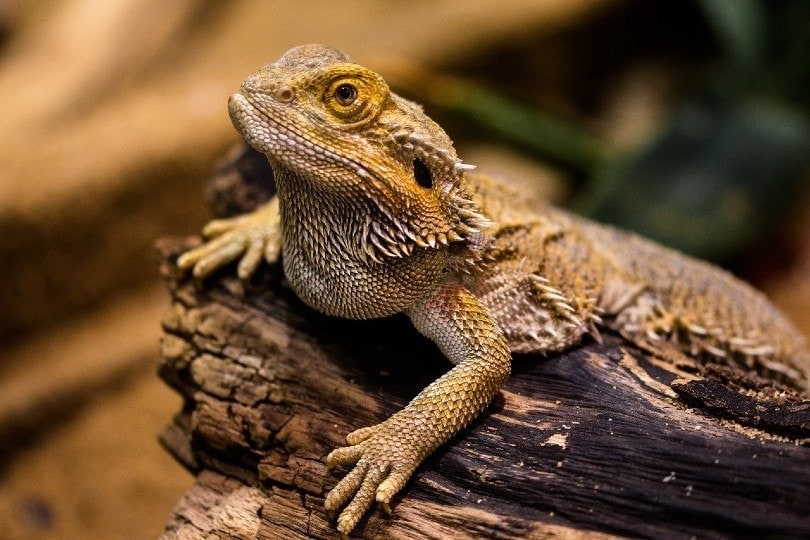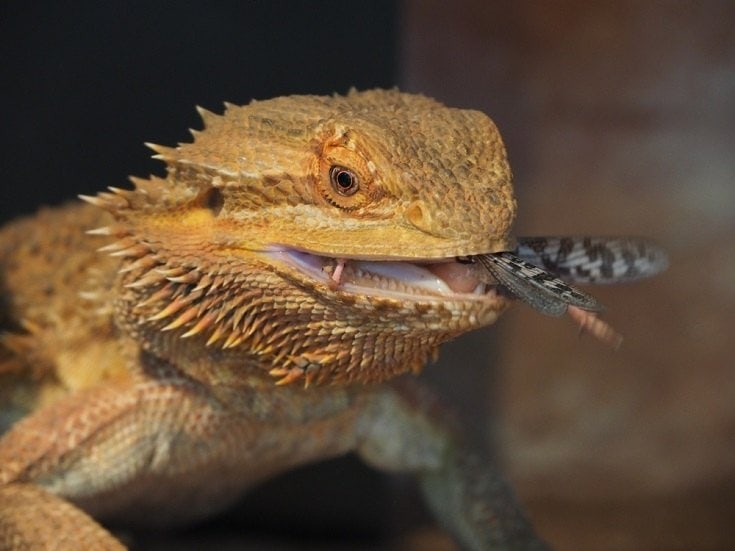
Armored with sharp reptilian scales and a beard of spiny scales, the bearded dragon certainly does justice to its namesake. Fortunately for us, they’re not 20 feet tall and terrorizing our villages. Instead, they are very commonly found as pets in lizard-loving homes.
But if they’re not going to capture the townsfolk, what do bearded dragons eat?
These lizards aren’t the pickiest of eaters and will gulp down almost anything. They’re omnivores, meaning that they’ll consume both animal-based proteins and plant matter, but their diet is somewhat mediated by their age. Younger bearded dragons tend to lean on the carnivore side and consume more lean protein as they are growing. However, older lizards prefer a more plant-based diet.
Let’s take a closer look at what this entails and break down the diet of a bearded dragon.

How Often Should Bearded Dragons Eat?
Before we get into actual specifics, you should understand their feeding cycle. Bearded dragons are diurnal animals, which means they are very active during the day and sleep at night. But that doesn’t mean they spend all day eating. In fact, they only need to eat twice or thrice daily as juveniles, and as adults, they need to eat much less frequently.
Overfeeding can lead to them becoming lethargic and ill. Healthy adult bearded dragons that aren’t overly active or breeding should only be fed around two or three times per week.
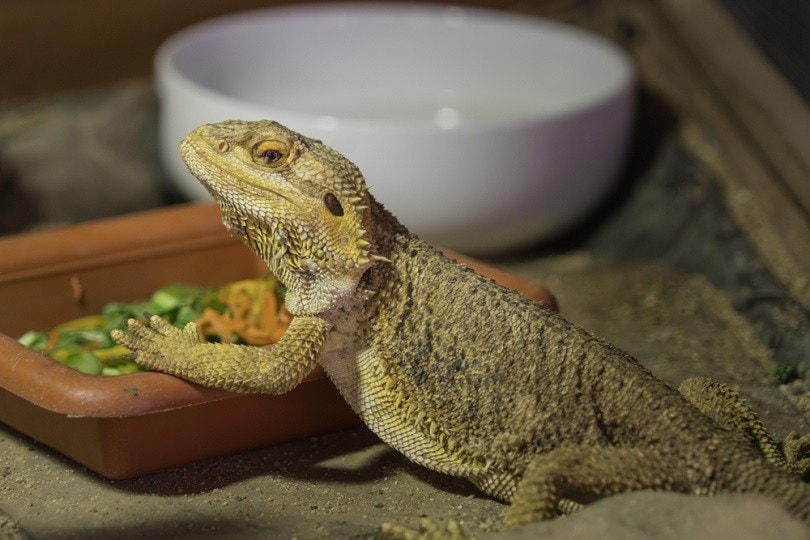
Animal-Based Proteins for Bearded Dragons
In the wild, bearded dragons are very resourceful foragers and consume a ton of small bugs such as grubs and beetles. However, it’s been found that termites provide some of the best nutrition for them. This might be in part because termites are relatively high in calcium content for an insect.
However, it can be a little tough to get your hands on some termites for your bearded dragon at home. Instead, we need to opt for other sources. While it may seem like a good idea to catch wild bugs from your home garden, it may not be the best choice — and that’s due to pesticides and fertilizers in the soil.
Instead, choose farm-raised insects from your local pet shop or raise insects yourself. This will ensure that their bugs are free of any harmful chemicals and will allow them to live their best lives. Here are some of the best sources of animal-based protein to feed your beardie:
Please note that these insects are good sources of protein but aren’t considered nutritionally balanced. It is very important to discuss feeding frequency and amount with your exotic veterinarian rather than offering insects to your bearded dragon without any rhyme or reason.
We recommend gut loading your insects 1 to 2 days before feeding them to your pet and dusting your insects with a supplement, such as Fluker’s High Calcium Cricket Diet Reptile Supplement. Don’t let the name on this cricket dust fool you. It’s not all just calcium. While high in much-desired calcium, this dust contains protein, vitamins, and minerals your bearded dragon needs.
Important: You should avoid feeding your bearded dragon fireflies. There’s a compound that they carry that makes them toxic to beardies. So, leave them be.
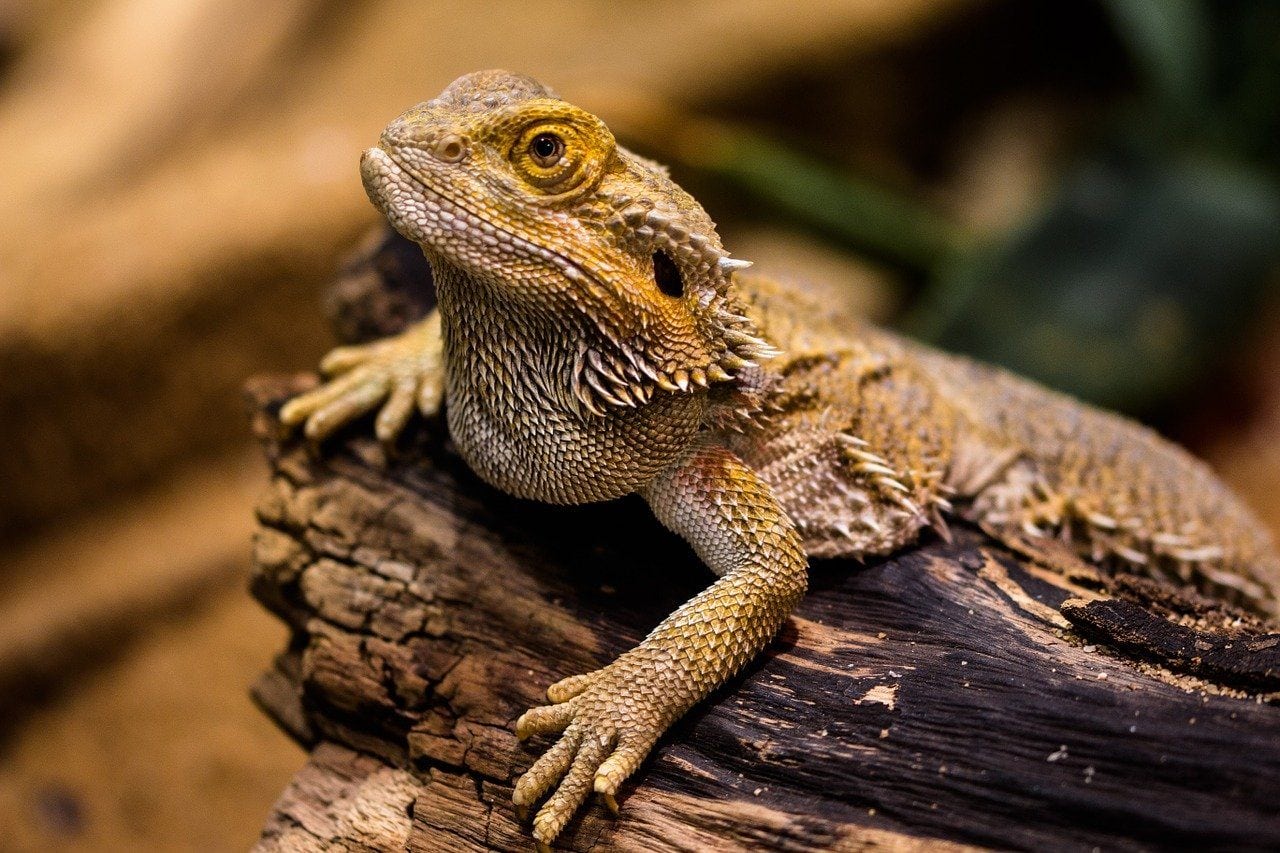

Plant-Based Material for Bearded Dragons
When it comes to plants as food, it’s slightly easier for most owners to figure out. In the wild, beardies will forage for leafy greens and even flowers to eat. This holds for pet lizards as well. The plant portion of your bearded dragon’s diet should primarily consist of dark, leafy greens that provide good nutrition such as collards, mustards, turnip greens, kale, parsley, clover, dandelion greens, or Swiss chard. These will ensure your lizard gets the nutrition they need.
You can also sparingly feed them other veggies such as squash, sprouts, parsnips, cucumbers, okra, and sweet potatoes.
Generally speaking, most vegetables are acceptable by bearded dragons. However, depending on your bearded dragon’s health status, some vegetables might be more beneficial for them than others. Likewise, although vegetables are often touted as “superfoods” for humans, it is important to remember that bearded dragons don’t share our physiology and are a completely different species. Overconsumption of a single vegetable is considered detrimental to their health.
Your bearded dragon can also eat fruit. However, this should only make up a small portion of their diet (consider them an occasional treat). Fruit just doesn’t contain as many key nutrients as dark leafy greens. The sugar in fruits may be a contributing factor for dental disease in bearded dragons.
Flowers are another source of food you can occasionally give to your lizard. If you decide to take that route though, you should ensure that they are grown organically with no pesticides and all-natural fertilizer.


Final Thoughts
As you can see, beardies aren’t very picky. There’s so much food available for them! Just be sure to gut load and dust your animal proteins and skip over fireflies. Bearded dragons are somewhat accepting of almost all vegetables, though the best ones for your pet will depend on several factors. As individual needs may differ for your pet, you should always consult your veterinarian for a nutritional plan that is appropriate for your pet.
Featured Image Credit: Dudley Simpson, shutterstock


